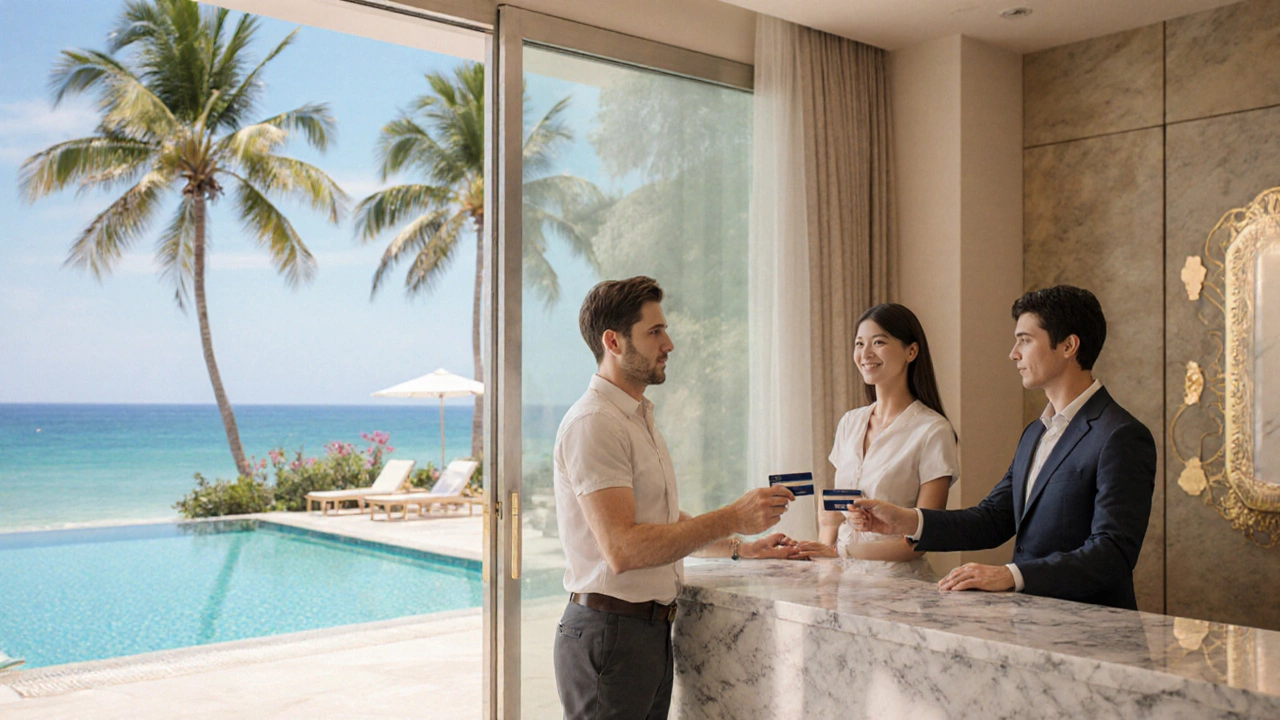Discover what "all‑inclusive hotel" really includes, why free food isn’t always entirely free, hidden fees to watch for, and how to judge true value for your vacation.
Hidden Costs in Travel: Spot the Fees Before They Spot You
We all love a good deal, but the real price often hides in the fine print. Whether you’re eyeing a self‑catering cottage, a glamping spot, or an all‑inclusive resort, extra charges can turn a bargain into a budget nightmare. Below we break down the most common hidden costs and give you quick ways to keep them out of your wallet.
Accommodation Extras That Add Up
Self‑catering sounds cheap because you skip restaurant bills, but many rental owners charge cleaning fees, linen hire, or a “tourist tax.” Those numbers can be $20‑$50 per night and are rarely included in the headline price. Ask the owner up front: is cleaning included, or do you need to budget extra?
All‑inclusive resorts are another trap. The package covers meals, drinks, and activities, but premium items like top‑shelf liquor or specialty restaurants often cost extra. Look for a “premium menu” note on the website, and decide if you’ll pay for those treats or stick to the basics.
Glamping sites love to boast “eco‑friendly” amenities, yet some charge for electricity, water, or even the use of a private toilet. Check the listing details for any “utility surcharge” before you book.
Family‑Friendly Fees You Might Miss
Traveling with kids? Many hotels have a specific age cutoff for “children” rates. If your child is just a few months over the limit, you could be charged a full adult rate without realizing it. Always verify the hotel’s child‑age policy and ask if a toddler‑discount applies.
Some cottage rentals include a “extra guest” fee for any person beyond the listed occupancy. It’s easy to overlook if you’re planning a spontaneous reunion. Make a quick call and ask how many people can stay for the listed price.
Even airports can sneak in hidden costs. If you have a long layover and want to rest in a nearby hotel, visa requirements or airport transit fees might apply. A quick search on the airport’s website can save you an unexpected charge.
So how do you keep hidden costs from ruining your trip? First, write down the headline price and then add a column for “potential extras.” Fill it with cleaning fees, utility surcharges, premium food, child policies, and any taxes you’ve seen on similar listings. Add those numbers to see the true total.
Second, use direct booking whenever possible. Booking a cottage straight with the owner can cut out platform fees that sometimes run 10‑15% of the stay. The owner may also be more flexible about waiving a cleaning charge if you leave the place tidy.
Third, read reviews. Travelers love to call out surprise fees in the comments, and you’ll often spot a pattern – like a resort that keeps charging for bottled water even though it says “all‑inclusive.”
Finally, don’t be shy about negotiating. A polite email asking if the cleaning fee can be reduced or removed is often successful, especially during off‑season periods.
Travel doesn’t have to be a game of guessing where the next charge will pop up. By asking the right questions, checking policies, and doing a quick math check before you click “book,” you lock in the price you expect and keep more cash for the experiences you actually want.
Delve into the less-talked-about downsides of all-inclusive packages. Discover potential hidden costs, lack of local flavor, and how these deals may impact your travel experience, plus clever tips to make smarter choices.

